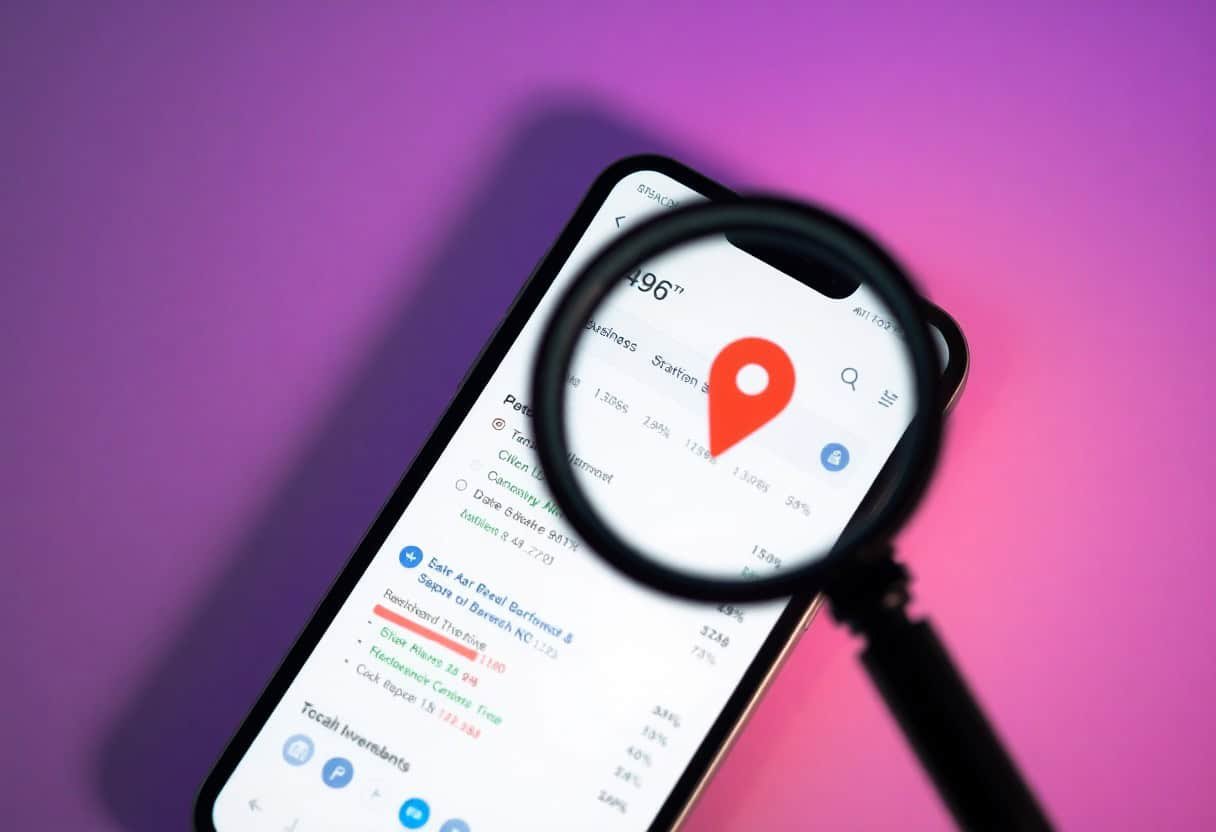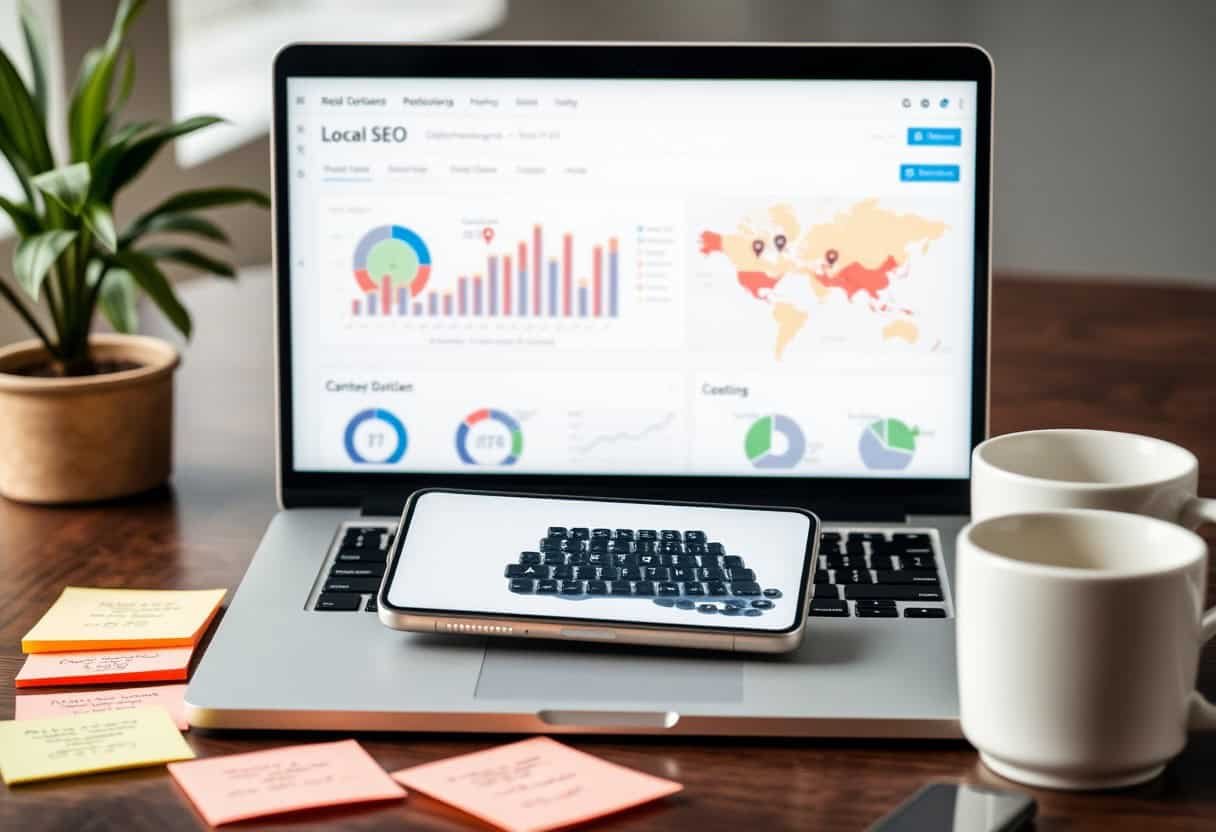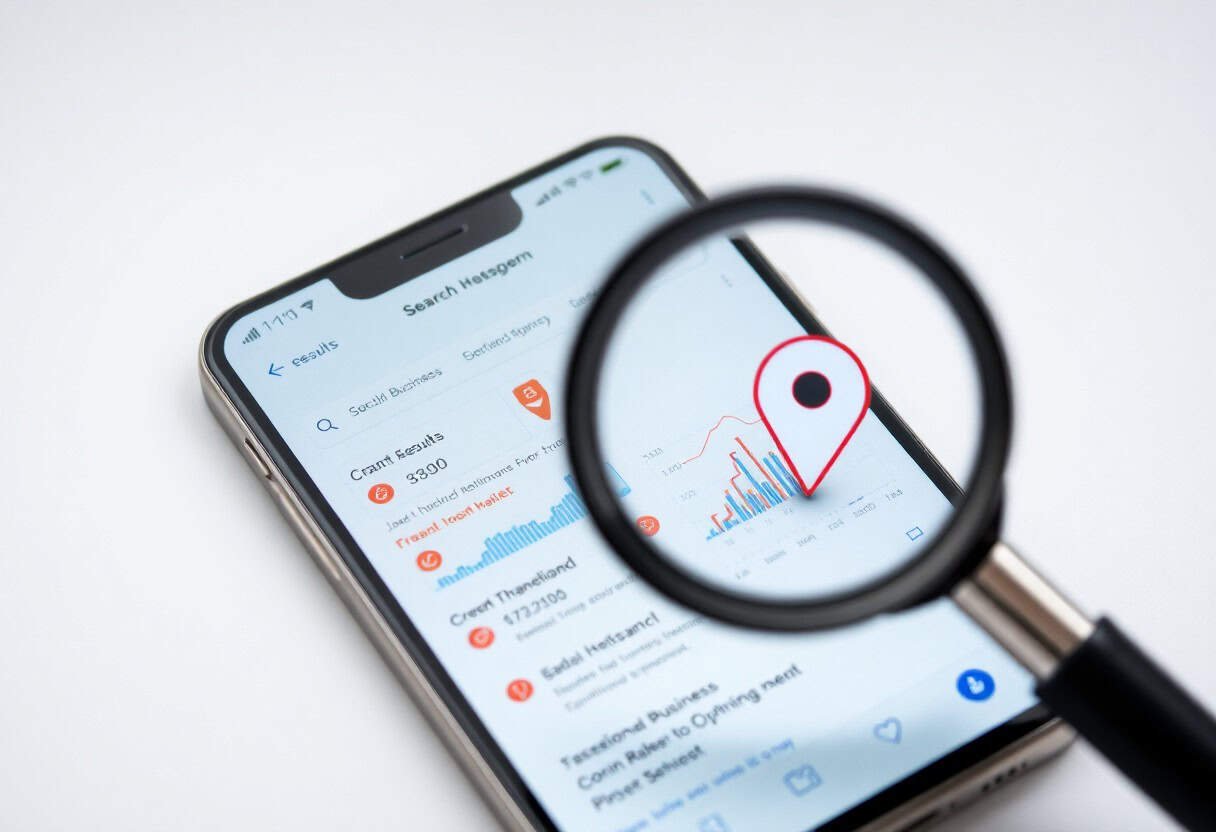Just how effective is AI click-through manipulation for improving your local search rankings? As more businesses turn to technology to optimize their online presence, understanding the relationship between click-through rates and local SEO becomes necessary. In this post, you’ll discover whether implementing AI-driven strategies can truly benefit your visibility in local search results and help you stay ahead of the competition.

Key Takeaways:
- AI can influence click-through rates, potentially impacting local search rankings.
- Manipulation techniques must be ethical and aligned with search engine guidelines to avoid penalties.
- Data analysis is necessary to assess the effectiveness of AI-driven click-through strategies in local contexts.
The Psychology of Click-Through Rates
Understanding click-through rates (CTRs) hinges on the psychology that drives user behavior. Your decision to click on a search result is often influenced by factors such as trust, relevance, and visual appeal. Search engines prioritize results that not only match user intent but also attract attention through compelling titles and descriptions. This interplay between psychological triggers and design elements can significantly affect CTRs, ultimately impacting your local rankings.
Behavioral Economics: Why Clicks Matter
Clicks are a form of social proof, demonstrating popularity and relevance to both users and algorithms. In behavioral economics, the idea of “choice architecture” suggests that how options are presented can lead to particular decisions. An increased CTR can signal to search engines that your content is more relevant or useful, encouraging higher rankings. Understanding this concept helps you optimize your listings to attract more clicks, which can positively influence your local search visibility.
The Influence of User Behavior on Local Search Rankings
User behavior plays a pivotal role in shaping local search rankings. Metrics such as CTR, dwell time, and bounce rate directly inform search engines about the effectiveness of your content. If users consistently click on your listing and engage positively, it indicates quality and relevance, which search algorithms favor. Conversely, high bounce rates can signal to search engines that users aren’t finding what they expected, negatively affecting your ranking.
User behavior in local search is not just a statistic; it fundamentally alters visibility in search results. For example, a business that experiences a notable increase in CTR due to targeted keywords or optimized meta descriptions will see an upward shift in rankings. Continuous adjustments based on user interaction data can lead to ongoing improvements, as algorithms may reward businesses with consistent engagement. Therefore, monitoring these behaviors enables you to adapt your SEO strategy effectively, ensuring your listings remain competitive in local searches.
The Mechanisms of Click-Through Manipulation
Click-through manipulation leverages various strategies to influence user behavior towards specific local listings. By utilizing data analytics, AI algorithms identify patterns in user engagement and adapt accordingly. This can involve optimizing metadata, titles, and descriptions to make listings more appealing. Understanding the underlying behaviors that drive clicks, such as appealing visuals or compelling calls-to-action, enhances the effectiveness of this manipulation, ultimately aiming to increase the perceived relevance of your local business in search rankings.
Techniques for Boosting Click-Through Rates
Enhancing click-through rates can be achieved through several targeted techniques. Eye-catching headlines, persuasive meta descriptions, and strategic use of emojis can draw users’ attention. Incorporating rich snippets and schema markup enriches the search results, making your listings stand out. Additionally, implementing A/B testing allows you to determine which elements drive the best engagement, enabling you to refine your approach continuously based on real-time data.
Ethical Considerations of Artificial Manipulation
Manipulating click-through rates raises significant ethical concerns. Misleading information or overly aggressive tactics can erode trust with potential customers and lead to negative perceptions of your brand. Furthermore, search engines continuously evolve their algorithms to combat deceptive practices, meaning that unethical methods may ultimately result in penalties or reduced visibility, undermining long-term success.
Manipulating click-through rates can create a slippery slope, where the immediate gains overshadow the potential long-term damage to your reputation. If users feel misled or disappointed by their experiences, they are less likely to engage with your business again. Ethical practices, such as providing genuine value and transparency, not only foster trust but also ensure sustainability in local search rankings. By prioritizing authenticity, you establish a loyal customer base that contributes to meaningful and lasting growth.
The Impact of AI on Local Search Algorithms
AI profoundly influences local search algorithms, enhancing precision in delivering relevant search results. Its ability to analyze user intent, contextual data, and real-time information ensures that local businesses can connect with potential customers effectively. AI’s integration enables continuous learning from user interactions, allowing search engines to adjust rankings based on emerging patterns and trends in local demand.
How AI Interprets Click-Through Data
AI interprets click-through data by analyzing patterns to gauge user engagement and preferences. This allows search engines to determine which listings are more appealing and how intent drives interaction with specific results. Advanced algorithms can differentiate between random clicks and genuine interest based on user behavior metrics, ultimately refining local ranking criteria.
The Evolution of Local Ranking Factors Due to AI
The introduction of AI has reshaped local ranking factors significantly, prioritizing user experience and engagement metrics over traditional SEO strategies. Factors that once dominated, such as keyword density, have given way to more dynamic indicators like dwell time and user feedback. This shift means that businesses must adapt their strategies to align with how AI assesses relevance and authority in local searches.
- Engagement metrics, such as churn rates, are now critical for local businesses.
- Content freshness and updates play a more significant role in rankings.
- Semantic relevance is prioritized as AI improves understanding of context.
- Location-based signals have become even more vital in an AI-driven ecosystem.
- Mobile optimization increasingly impacts local search performance.
- AI’s predictive capabilities influence future ranking trends.
- Any strategy focused on providing real value will likely yield better results.
As AI continues to evolve, the factors influencing local rankings will adapt accordingly. Companies that prioritize genuine user engagement and satisfaction will see positive shifts in their visibility. Emphasizing content that resonates with local needs and using data analytics to refine your offerings can make a substantial difference. Notably, businesses that embrace AI-driven insights around user preferences and behavior are better positioned to thrive amidst the changing landscape.
- Real-time interaction data plays a pivotal role in ranking adjustments.
- Local relevance outweighs broader search parameters in many cases.
- AI usage analytics help businesses tailor marketing efforts effectively.
- Voice search optimization is becoming an imperative part of local SEO.
- Keen understanding of regional trends enhances competitive advantage.
- Any effort to improve user experience will positively impact rankings.

Real-World Implications of Click-Through Manipulation
Click-through manipulation can significantly impact local rankings, but it also raises ethical concerns and potential penalties. By artificially inflating click-through rates, you risk drawing scrutiny from search engines, which may view these tactics as misleading. Additionally, short-term gains may not lead to sustainable visibility if consumers find the served content unhelpful or irrelevant. Balance is key; while manipulation may yield immediate results, the long-term repercussions could outweigh any benefits.
Case Studies: Success Stories and Failures
Several case studies illustrate the diverse outcomes of click-through manipulation. Some campaigns see impressive short-term boosts, while others falter dramatically.
- Case Study 1: Local restaurant implemented click-through tactics, leading to a 40% increase in traffic initially but faced a 30% drop in metrics two months later.
- Case Study 2: Legal firm used targeted ads that doubled its click-through rate, resulting in a 50% rise in client inquiries, maintaining results for six months.
- Case Study 3: An e-commerce site manipulated meta descriptions, achieving a 25% traffic increase but faced penalties leading to a 50% ranking drop a quarter later.
- Case Study 4: A small business effectively employed click-through tactics, boosting visibility by 70%, with sustained growth due to continuous optimization strategies.
Evaluating Long-Term Effects on Business Visibility
Long-term effects on business visibility can fluctuate based on the strategies employed. If lightly used, click-through manipulation can offer insights into consumer behavior that inform genuine improvement. However, more aggressive tactics might not only attract the attention of search engines but also incur a loss of trust among your audience. Regular evaluations and adaptations based on performance analytics become vital to ensuring visibility is both effective and sustainable, enabling your business to thrive in the competitive local landscape.
Expert Opinions: A Divide in the Industry
Discussions surrounding click-through manipulation in local rankings reveal a clear divide among industry experts. Some embrace these strategies as innovative tools, while others voice significant concerns over their ethical implications and long-term effectiveness. This schism highlights the complexity of navigating local SEO in a rapidly evolving digital landscape.
Proponents of Click-Through Strategies
Advocates argue that leveraging click-through strategies can lead to substantial gains in visibility and traffic for local businesses. By optimizing meta titles and descriptions or employing strategic calls to action, you can increase user engagement and potentially boost your rankings in search results, making it a tempting tactic for many marketers.
Critics Warn Against Over-Reliance on Manipulation
Critics express concern that an over-reliance on manipulation tactics can backfire, leading to unstable rankings and possible penalties from search engines. They argue that while short-term gains may occur, relying on deceptive strategies could erode trust between businesses and their customers, ultimately harming reputation and performance.
Critics point out that search engines continuously evolve their algorithms to identify and penalize manipulation tactics. Case studies show that businesses engaging in deceptive practices often face drastic drops in rankings once their actions are detected. Moreover, priorities are shifting towards providing genuine value and relevance to users, which can be compromised when focusing solely on click-through rates. The balance between optimizing for engagement and maintaining ethical practices remains a critical debate in the industry.
To wrap up
Presently, while AI click-through manipulation may offer insights into user behavior and assist in optimizing your local rankings, its effectiveness can vary. If you implement such strategies, ensure they align with ethical practices and guidelines, as search engines increasingly prioritize genuine, relevant content and user experience. Focus on creating valuable connections with your audience, as this will lead to sustainable growth in your local rankings over time.
FAQ
Q: Does AI click-through manipulation have a significant impact on local rankings?
A: While AI click-through manipulation can influence local rankings to some extent by increasing perceived relevance, search engines are continually updating their algorithms to detect and mitigate such practices. Over time, the effectiveness may diminish, making it necessary to focus on genuine engagement metrics.
Q: What are the ethical considerations of using AI for click-through manipulation?
A: Using AI for click-through manipulation raises ethical concerns regarding transparency and fairness in search results. Misleading clicks can distort genuine user experiences and violate search engine guidelines, potentially leading to penalties or bans from search engines.
Q: Are there alternative strategies for improving local rankings without manipulation?
A: Yes, effective strategies include optimizing Google My Business profiles, acquiring genuine customer reviews, ensuring accurate local citations, and producing high-quality, relevant content. These methods foster organic growth and sustainable improvement in local rankings.

